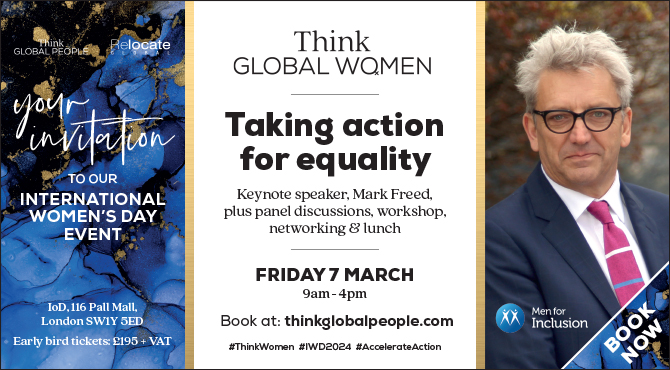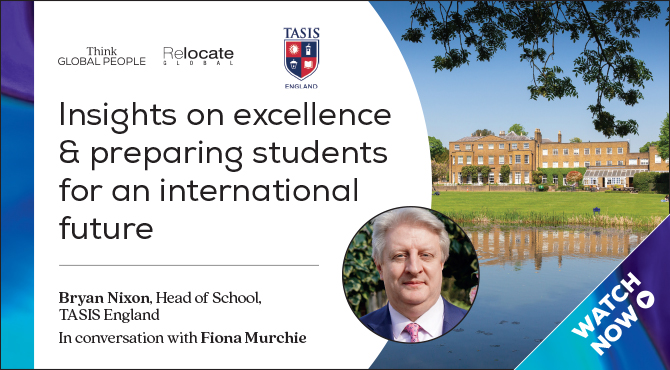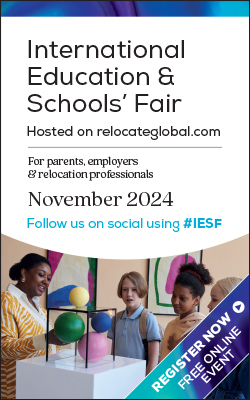Reaching for the stars: three lessons for thinking big about STEAM
Space communicator and scientist Dame Dr Maggie Aderin-Pocock MBE is changing the way we think about space. ‘The Sky at Night’ host is an ambassador for the UK’s booming space tech industry. She launched day two of the CIPD 2024 conference, recounting her journey from school to satellites, in an inspiring talk about the importance of thinking big and connecting future talent to future jobs.
Dr Maggie Aderin-Pocock is powered by a “crazy dream”. Her goal is to get more children and young people involved and interested in science, technology, education, the arts and maths – STEAM.
“It’s all those things that make the world go round,” she told delegates at the CIPD annual conference and exhibition in Manchester and watching on the conference livestream. The reason, she explained, is because the UK is struggling to build and maintain the talent pipeline needed to sustain the UK’s booming space-tech industry.
The wonder years?
The UK space industry generates £16.5 billion annually and employs 47,000 people across the country.
“We do space in the UK and we do it really well,” said Dr Maggie Aderin-Pocock. But it’s definitely a case of ‘Houston, we have a problem’. We need more STEM practitioners. Only 15% of 10-14-year-olds aspire to pursue a career as a scientist, leaving us with a potential skills shortage. STEM is driving our economy and the government realises we need more in the talent pipeline.”A case in point is the increasing number of high-school students taking science subjects and qualifications. “There are physicists everywhere,” she says. The message is getting through that science degrees offer transferable skills. But for the STEM sector, including the space industry, it’s about creating inclusion, attracting people and retaining them.
Dr Aderin-Pocock’s three-pronged approach “thinks big” and “thinks crazy”. Her solution is based on her outreach to over 500,000 people, mostly children, and influence across academia, business and broadcasting. It looks at role models, relevance and developing a sense of wonder.
The importance of diverse role models
“One of the things we can do to get more kids into STEM is to make space more diverse,” said Dr Aderin-Pocock, who set up her company Science Innovation Ltd to help tackle the challenge. Science has an image problem as well as a diversity and inclusion issue. “This is what we need to get over, this idea of scientists and engineers being socially inept and other.”
Statistics show the size of the opportunity for increasing diversity, inclusion and belonging in STEM. Men from ethnic minorities are 28% less likely to work in these areas than white men. A similar number (29%) of people identifying as LGBTQ+ opt out of careers in STEM for fear of discrimination. Women comprise just over a fifth (22%) of the core STEM workforce.
“We need to overcome this hurdle; we need to make STEM more diverse, because if it’s only done by a small demographic, we are not serving humanity well,” said Dr Aderin-Pocock.
Living the adage ‘you’ve got to see it to be it’, Dr Aderin-Pocock is a high-profile and visible space communicator. She presents children’s and adults’ factual TV, is an author and works with schools, as well as with academics around the world and policymakers. A core message Dr Aderin-Pocock is keen to communicate is that we are all role models. Our passions and imperfections are what young people will connect with. “Marie Curie was a mother of two kids who won two Nobel prizes and a single mother because her husband died quite early. It’s nice to bring the characters out behind the stories like [vaccine pioneer] Alan Powell Goffe and Gladys West, whose work was seminal in the GPS we use today, and not put people on pedestals.”
In 2023, Mattel launched a Barbie doll of Dr Aderin-Pocock to honour International Women’s Day. This is another way of storytelling and helping young people and children to connect with science and technology.
“One of the biggest fears was the moment of revelation,” she recalled when she described how the doll was brought to life. “They take lots of photographs, and this is actually one of my dresses as you can see, and then they create your Barbie. I remember there was going to be this big reveal in front of the press and I thought, what if I don’t like it? What if it doesn’t look like me? But it looked like me on a really good day, which is how a Barbie should look.
“Being a role model isn’t about being perfect. I look back to that picture of Marie Curie with her two daughters and think about being human and having something you are passionate about. Every one of us has that thing that burns inside of us brightly. When we get out there and share it with other people, that’s what makes us role models. I love it when I turn up to school with jam down my top and children say, ‘well, if she can do it, I can do it’.”
Make it relevant
The second strand of Dr Aderin-Pocock’s work around making science and technology careers in the space sector accessible is making it relevant. This includes overcoming the idea that space and astronomy are the domains of “white guys in togas, because that’s all you hear about: the Greeks, the Romans”.
“These are the guys that got astronomy sewed up,” she said. “But as a Black kid growing up in London, I didn’t feel l like I belonged in that world.” Yet through archeoastronomy, the field of looking back in astronomy’s history, there is now greater recognition and learning around how every culture has looked up and wondered and celebrated the night sky. Nabta Playa in Namibia, for example, predates Stonehenge.
“It’s something inherent in all of us. If we get a clear night and we look up, it lifts our hearts and it lifts our souls. I talk about the moon for mindfulness. If I’ve had a rough day and I see the moon, I just feel peaceful. Every culture has looked up and love to go out and tell people this.”
This multidisciplinary approach has seen Dr Aderin-Pocock work alongside organisations like English Heritage, who look after Stonehenge. It is also cross-cultural, taking her career all around the world to work with international teams. She highlights Arabic astrolabes, tools that track the movement of stars, as a perfect example of STEAM.
“It’s a scientific instrument. It’s got wonderful engravings over the surface, so that makes it art, but if you look at the words inscribed around the edge, these are from the Qur’an, so it’s a wonderful cultural piece involving all sorts of creativity.”
Perhaps the greatest influence on a young Maggie were the televised lunar landings and series like Star Trek and The Clangers, which link to her TV career today. “One small step for man, one giant leap for mankind were the words echoing in my head as I grew up,” she said.
“I was taking my first few wobbly steps as Neil Armstrong was taking his giant leap, but it had a profound effect on me and the whole world. For me, it set a dream. Star Trek was people from all over the world coming together and working, including aliens like Spock. My absolute role model was Lieutenant Uhura. What a woman!”
These influences have informed her “crazy dream” and those she hopes to inspire in the next generation. Her experiences at school are also valuable and relatable to people and families who are globally mobile and for people who are neurodivergent. While there is much greater cross-cultural understanding and teaching of global mindedness and citizenship, transitions care and feelings around belonging and identity today, Dr Aderin-Pocock experienced the common feelings children and young people can face when they move school or countries.
“I went to many different schools and often people would say to me ‘why don’t you go back home?’ and I don’t think they meant round the corner,” she explained. “I think they were referring to Africa. So I felt I didn’t really belong here, but then I’d go home and I’d meet relatives and they’d say, ‘oh Maggie, are you a lost Nigerian? You don’t speak the language, you’ve never been to Nigeria and you don’t belong there either’. But when you look up at space, you don’t see barriers and you don’t see borders. You just see our planet and stars and that sums it up for me.”
It is a powerful message and one that Dr Aderin-Pocock has had to dig deep, fight for and commit to at every stage. Her parents separated and she was raised across both homes, attending 13 different schools. She is also dyslexic, which she sees as a positive for the creativity and soft skills it brings her – and particularly important for harnessing the deployment and development of AI – and an ambassador of the charity, Made by Dyslexia.
Despite the challenges, there came a point in her early teenage years when she set her mind to studying hard and saw her grades tick up as a result, ultimately securing her a place at Imperial College, London. For her, science is by nature about dead ends, but it’s about having the skills to pick yourself up from it, learning throughout your life, being entrepreneurial and achieving your goals.
Lean into worlds of wonder
“The biggest thing we’ve got going for us in terms of selling science to people is that sense of wonder,” she said of the third aspect of her approach. “We are doing things now that when I was at university I would never have thought possible. So we’re thinking big and thinking crazy and trying to change the lay of the land, to change the knowledge of humanity.”In the space industry, the OWL (overwhelmingly large telescope) and its successor, ELT (extremely large telescope, currently under construction) epitomise this approach. These multinational collaborative projects are helping us better understand space, while satellite technologies are helping charities and NGOs deliver better support to people in refugee camps and the information to mitigate natural disasters. Developments in spectroscopy are also helping us with the question of whether or not there could be or are other Earth-like planets.
“Any reality we are given is not set in stone,” said Dr Aderin-Pocock. “We can transform the reality we are given into the reality we want.” Agreeing with international leader Christina Figueres on the “stubborn optimism” we need and the grit, determination and relentlessness to bring our goals – individual or global – to fruition, she says collaboration rather than confrontation is the way to achieve this.
“Having a crazy dream is something we all need in our lives. For me, it was wanting to get out into space and this is a truly crazy dream. When you fall over and things go wrong, you pick yourself up because you think about what you can achieve. You are also never sure where it’s going to take you.”







